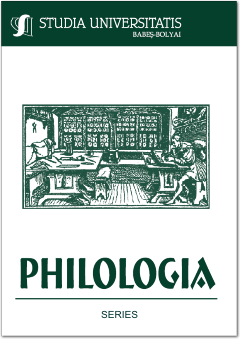IRONIE ET ARGUMENTATION DANS LE DISCOURS PARLEMENTAIRE PORTUGAIS
IRONY AND ARGUMENTATION IN PORTUGUESE PARLIAMENTARY DISCOURSE
Author(s): Ana Cristina Pereira BrazSubject(s): Language and Literature Studies
Published by: Studia Universitatis Babes-Bolyai
Keywords: irony; argumentation; rhetoric; persuasion; parliamentary discourse; face; ethos; pathos.
Summary/Abstract: Irony and argumentation in Portuguese parliamentary discourse. The aim of this paper is to study argumentation in political discourse, namely in parliamentary discourse, the focus being the relations between irony and argumentation. Since Antiquity, irony has been seen as a rhetorical device, used in oratory for purposes of discourse efficiency. The present day political discourse stems from the same rhetorical tradition. Being one of the favourite discursive mechanisms of political persuasion, irony is an argumentative device common in parliamentary debates, a highly controversial and confrontational discursive subgenre, where opposite parties clash. By its evaluative nature and perlocutionary effect of criticizing the political opponents, irony contributes to the argumentation process, relying particularly on the images that it creates. The corpus we analyse contains excerpts of speeches given in plenary sittings that took place in the Portuguese Assembly between September 15th, 2010 and May 19th, 2011.
Journal: Studia Universitatis Babes-Bolyai - Philologia
- Issue Year: 62/2017
- Issue No: 4
- Page Range: 53-62
- Page Count: 10
- Language: French

